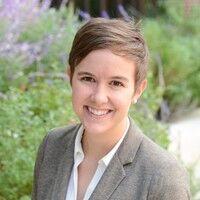
“Adulting is a never-ending to-do list,” a dear friend mused recently. I had never heard a more accurate description of what it meant to grow up.
There are all the things that must get done daily, and then there are the important but unnecessarily difficult tasks to navigate, like “research college saving options.”
Quickly, I was overwhelmed when taking on that task. Multiple types of accounts and many companies offer options with different requirements, restrictions and tax implications. Honestly, I still have not figured it out or set one up.
But in the limited time I dedicated to this task, bigger conversations emerged in our household: Would college be worth it for our young son? Would it even be something that we expected of him?
First, my husband and I recognized that we are privileged to even entertain saving for our son’s future. Far too many in the United States (not to mention globally) lack access to this freedom. To be in a place where we can consider how our financial decisions will affect our son’s options 20 years from now — and that college is a realistic possibility — represents the inequity that persists in access to education. Period, end of sentence.
Second, we realized that college is expensive. The average cost for a four-year undergraduate degree with in-state tuition and fees is $10,900 annually, according to a 2022 College Board report. A private institution’s tuition is almost four times that.
According to the College Board report, most students receive some financial assistance through grants, scholarships or waivers. But the financial burden for many students will follow them well into their careers.
I was fortunate to not have accrued student loans for my undergraduate or graduate degrees. As an undergrad student at a public in-state institution, I received financial assistance to cover tuition and fees, held a student job, and had some savings that helped. I chose a graduate program that allowed me to work full-time, take advantage of our organization’s education assistance program, and pay in-state tuition at a public university.
This isn’t the case for far too many. According to a report by the Education Data Initiative, nearly 43 million people are responsible for paying off student loans, with a remaining balance of student loan debt up to $40,000. By income, students from middle-income backgrounds are most likely to have federal student loans.
The debt burden is most acutely felt among Black graduates. Four years after they graduate, nearly half of the Black students owe 12 percent more than what they initially borrowed.
If college is an option for my son — one that won’t launch his professional career already in the red — it will have to begin with our preparation now.
For our family, it’s not about the letters behind a name or the accolades that come with higher education. It’s about our son being a kind person, someone who accepts others just as they are, and who will contribute to his community and society in the way that best suits his skills, passion and realistic options while allowing him to be financially independent. While we know the data correlating education to income, our personal experience has taught us a college education alone is not the path to happiness and success. There are other options.
My husband attended a Dallas public school where teachers repeatedly told students that “most of you won’t graduate, so why try?” He graduated against the odds: 75 percent of his freshman class didn’t complete high school.
After a year at a local junior college, he entered a Bible training program where he received spiritual development and also skills in graphic design, videography and photography. He is now a successful creative director at a mega church in Houston. He has never applied for a job or even had a resume — and he is sought out, without a college degree.
I’m not saying that will happen for everyone — it wouldn’t have been so for me. And for those who want a college degree but for whom the cost is prohibitive, we need better options to create more equitable opportunities for everyone. But for our family, we want to keep our options open for our son so that whatever he chooses, formal college education or another path, he knows we support him in pursuing his dreams.
Crystal Cazier is deputy director of the George W. Bush Institute’s Global Health Initiative. A longer version of this essay originally appeared in The Catalyst: A Journal of Ideas from the Bush Institute.This is distributed by InsideSources.com.
Source link
